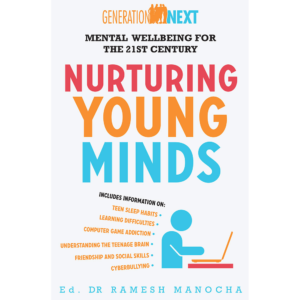This is the time of year when motivation slumps, energy evaporates and your get up and go has got up and gone. With about 10 weeks to go till the end of the year (for senior students) this is the time when the largest gains or losses will be made in terms of end of year marks.
Here are a few quick strategies to tune up your motivation for the rest of the year.
Why Motivation matters a lot
Senior students undertake one of the most ambitious missions known to humanity. People find it hard to push themselves to do difficult things & find it even harder to continually push themselves to improve over time.
By this stage of the year, it can feel like a slog.
Gaining a useful understanding of how brains learn & how to increase your dopamine & motivation, is among the most useful pieces of knowledge you can have.
Sleep = Learning
You consolidate your knowledge, understanding and memory while you sleep. The next 10 weeks are the time to be in charge of your phone. Step away from your device, no one is going to get hurt.
Put your phone away and give yourself the advantage of sleeping well. A rested brain is 40% smarter than a tired one.
Dancing with Dopamine
Higher levels of dopamine are related to motivation.
You can feel when dopamine declines, your energy leaves the room.
Managing Your Dopamine
You can regulate dopamine schedules to optimise engagement, motivation & learning.
In the morning make your home brightly lit. Put music on if you want. If you can, eat breakfast outdoors if you have a back veranda or patio or in a sunny room.
Ritualise the start of the day with one of two options:
1. If you feel seem really sluggish, solo activities for the first 5 to 10 minutes such as creating a list of activities to do or preparing foods to eat later in the day.
2. If you feel more switched on, warm yourself up with funny quizzes, jokes, sharing weird facts or playing 20 questions over breakfast.
Incorporating some physical movements especially rhythmic movements (walking, singing, dancing, shooting goals in basketball) increases dopamine.
Each day has a rhythm with predictable peaks & troughs of energy, learning & dopamine.
Scheduling can capitalise on this to maximise learning outcomes and harmony in your home.
The most powerful motivation tune up techniques
Build on your learning strengths & forget about your weaknesses
Most people are not good at everything. They don’t have to be. Success in life is about doing more of what you are good at & less of the things you are not good at. Ariana Grande is not well known because she can do Mathematics, Einstein wasn’t well known because he played soccer. When you focus on the things you find more enjoyable & interesting at school, even the things you find harder become easier.
Assess your learning strengths at www.mylearningstrengths.com & develop a study starting point from your top learning strength.
Building from an area you already feel confident in, helps to overcome their worries or fears. Starting with what is easiest, builds momentum & motivation.
If your strongest learning strength is:
Spatial Reasoning – start with by drawing & linking main ideas
Perceptual- Motor Skills – start with by linking their learning with physical movements.
Concentration and memory – convert their learning into a memory game.
Planning and sequencing – make a detailed plan for their learning & put the tasks to be completed into order.
Thinking and logic – evaluate the pros & cons of learning
People smarts -think about people who will be impressed if they succeed. Think about the lives of people they admire.
Language and word smarts – create a story about the key pieces of information they need to learn.
Number smarts – find ways to integrate thinking in numbers with the information they are learning about.
Use the full personalised learning success plan from the website to help you to do this.
Learning strengths also relate to career paths and course selection, so if you feel unmotivated because you have no idea what you will do next year, this will help.
Set small goals and one large one
For each subject at school set a small goal each week. For example, a goal might read & understand one chapter. Write the goal down somewhere. When you have achieved that goal give it a tick.
Decide to make your favourite subject at school the one to “go for broke in.” In this subject the aim is to do really well. Success has a way of becoming contagious.
Get organised
If you are in the senior years of school consider disabling social media in the lead up to exams..
Ask teachers to help you by saying something like, ‘I lost motivation for a while in this subject but now I’d really like to catch up.’
If you have not been in the practice of making notes, start. If you feel embarrassed about asking questions in class, set a goal of asking one question per class. Smart people ask more questions.
If that feels too embarrassing, ask the teacher after class. If you’ve missed notes, ask for copies of them.
Write a revision summary for each subject to date, topic by topic.
If your study area has become a mess, clean it up.
Use post-it notes to organise the steps towards a successful outcome. On the first post-it note write the successful outcome they have in mind for that subject. Write the step before that & the step before that. Then write the first step you could take.
No one would enter a marathon without doing a series of shorter training runs first and the same thing applies to doing well at school. Regaining motivation is a step by step process.
Most people who feel unmotivated think everyone else knows more, is more talented, is smarter and has a lot more brains than they are.
My research shows you probably have absolutely no idea how well you are going to do at school so don’t believe your own negative self-talk or predictions of failure.
It is highly likely that you are more intelligent than you realise. You certainly have learning strengths you are yet to discover. It is also highly likely that most of your classmates are not quite as advanced or as organised as they seem to be.
Use the time in school well
Many students muck around in school & then wonder why they have to do so much work outside of school. Consider sitting towards the front in class. If you can focus & listen well while at school, they can save endless hours. This is valuable time that can be used for hanging out with friends & having fun.
Have an honest discussion
If you have been unmotivated you may do anything to avoid doing the study time. The world is full of excuses that we can all make: “The dog needs a walk”, “I have to finish this game & then I’ll study”, “I’ll have a nap & study when I wake up”.
We have to be tough enough on ourselves to do the work BEFORE we do the computer games/ messaging etc.
Also be honest enough to admit to that lying in bed, with the computer on, listening to music, with YouTube in the background & messenger open to chat with friends, is not & will never be, studying. Have some study time sitting up at a desk or table with NO electronic distractions on.
Change your routine
If you’ve been finding it difficult to get motivated, change your pattern. For example, study in a local library rather than at home or change the room you will study in.
Just as you learn to surf best by surfing, you learn to succeed in exams & essays by giving your undivided attention to your study. Practice in the same conditions you intend to perform in. There won’t be electronics & music in the exam room.
Why we should you care?
You might be able to dismiss all of the above points by saying, ‘I can’t do it’ or ‘I can’t be bothered’ or ‘This sucks.’ That is just the part of you that is scared that is talking them out of it. The scared part thinks that if you try & fail, it will be much worse than never having tried in the first place.
Think about what would happen if you applied this type of thinking to the whole of their life. They wouldn’t learn music & start a band because King Gizzard and the Lizard Wizards, Pink & Beyoncé have already done it. You would never talk to someone you like because you could be rejected. You would never go to a place you would really like because it could disappoint you. You wouldn’t live the life you could live because you would lack the daring & courage.
Give up fear and gain motivation
You know the No.1 fear of all time?
Death? No.
Speaking in public? No.
The number one fear that people have is that other people will think badly of them. And you know what the biggest, saddest joke about that fear is?
Most people don’t think about other people much at all. Most people are so busy or so focused on themselves that haven’t got the interest or the energy to judge whether you are good at something or not.
So, there is a risk that you could lessen your chances of having a great outcome this year by worrying about something that doesn’t even exist. So as Yoda in Star Wars said, ‘There is only do or not do.” It is up to you. But don’t make what other people might think of you if you stuff up, a reason for giving up on yourself.
So why listen to me?
I spend a lot of my time talking to adults who gave up on themselves at school & spend their lives doing boring jobs that don’t pay very well.
I also spend even more of my time talking to students who have done really well in school after not being thought of as clever, or talented, or gifted or smart in any way. These students have taught me the ingredients of success. Now you have them too. What you do with them is up to you. Good luck.
More information
For sessions that take teachers through the three stages- understanding cognitive load, creating and using learning ease and accelerating cognitive velocity, or on attention training, tailored to your setting, email: inyahead@aussiebb.com.au
Andrew’s website www.mylearningstrengths.com has helped over 200,000 young people discover their learning strengths.
Plus, visit www.andrewfuller.com.au
Book for Parents
- Neuroadvantage: The Strengths-Based Approach to Neurodivergence
- Approach to Neurodivergence
- Tricky Behaviours
- The A to Z of Feelings
- Unlocking Your Child’s Genius (Amba Press)
Book for Teachers
- Guerilla Tactics for Teachers
- Tricky Behaviours
- Tricky Conversations
- Tricky Teens
- Unlocking Your Child’s Genius
- Neurodevelopmental Differentiation- Optimising Brain Systems to Maximise Learning (Amba Press)








